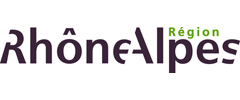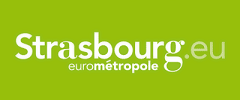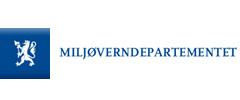Learning about REACH, Lobbying for REACH
25 Women representing WECF member organisations from 8 European Countries go to Brussels and meet their MEPs
01.07.2005 |Dorine van der Keur

The Women's REACH Seminar in Brussels, photo WEN UK
WECF Women and REACH Seminar 13 & 15 June 2005 in Brussels
By Dorine van der Keur
Women and EU Chemicals Policy
WECF organised a seminar in Brussels on “Women for REACH” from 13-15 June. About 25 women from all over Europe participated (France, Germany, Greece, Hungary, Latvia, The Netherlands, Poland and UK). The 25 women represent women’s organisations, such as for example the Women’s Institute UK with 250.000 members, or ZijActief Netherlands with 165.000 members. Most of these women have only since shortly become involved in the debate on the need to protect citizen’s from toxic chemicals in our daily lives.
REACH is the proposed new legislation for the control of chemicals, produced or used within the EU. It stands for Registration, Evaluation, Authorization and restriction of CHemicals. During the seminar all aspects of REACH were covered: the legal, political, gender and health aspects and last but not least the financial aspects!
The seminar emphasised the importance of a strong REACH in order to protect the health of Europeans.
A strong REACH includes:
- the obligation of substitution where chemicals of high concern will have to be phased out if there are better alternatives
- no exemption for chemicals that are produced in smaller quantities (1-10 ton per year)
- the effects of chemicals on the development of the foetus and the health of women should be taken into consideration in risk assessments
- consumers, retailers and downstream users have full access to information on chemicals and their health- and safety risks
- clear labelling for dangerous chemicals in consumer products
- no exceptions for chemicals that are used in imported articles
Counter-balance the Industry Lobby
From presentations by MEPs it became clear that the chemical industry has a big – not to be underestimated – interest in REACH and is lobbying actively for a REACH that is not damaging their business interests.
The second seminar day included an informative tour on lobby activities in Brussels. Industry lobby is a big business in Brussels. Some 15,000 to 25,000 professional lobbyers are daily active in the city. They fill whole offices, buildings and streets across the EP and the Commission buildings.
The participating women understood even more the need for a counterbalance to the industry-lobby. It’s important that citizen’s contact their politicians and give the human perspective. Although after seeing how industry lobbyist are at friendly terms with politicians and meet politicians for coffees on a almost daily basis, bringing in the citizen’s perspective seems like a David against Goliath effort. But therefore even more important!
25 Women meet their MEPs
With all the knowledge that was shared, the 25 women felt well equipped to do their own lobby work in Brussels. After role plays and instructions on ‘how to lobby in Brussels’ all women successfully made appointments with the MEPs from their respective countries for meetings on the third day of the seminar.
All the 25 women met with several of their country MEPs. The Greek partner even managed to speak to all the Greek MEPs for 2 hours, as they happened to be meeting together already in a café. The 25 women spend their entire day in the European Parliament building, regrouping after meetings with MEP to share their experience before going to a next meeting. In this way the group created a strong bond and helped each other to further develop their arguments.
As all European citizen’s are concerned, the women are very concerned and had a strong message to get across with their MEPs. It was felt by all the women that their meetings with MEPS had been extremely important, and a small step towards bringing the future of our children into the discussion of REACH.
We hope that the visited politicians are now more aware of the concerns and thoughts of their constituency and understand that a strong REACH is in the interest of all Europeans.
[WECF is grateful for the support from the European Environmental Bureau and the Rausing Trust UK]
































